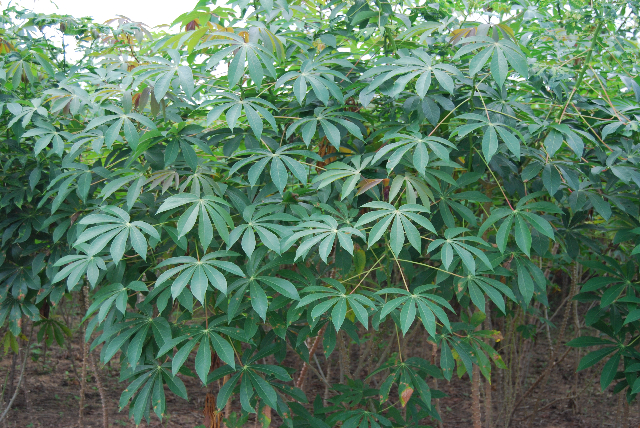Discover the best drought-resistant crops to boost yields for Nigerian farmers in challenging climates.
For generations, Nigerian farmers relied on predictable wet and dry seasons. But today, shifting and irregular weather patterns are reducing outputs and threatening national food security.
In northern states such as Borno, Yobe, and Sokoto, prolonged dry seasons have made farming a gamble. Even southern regions, once spared, now face unusual drought conditions.
To stay productive, farmers should consider embracing crops that demand less water and still yield bountiful harvests. Below are ten of the most relevant drought-tolerant crops for Nigeria.
Sorghum is Nigeria’s second most sought-after cereal crop after maize. It can withstand hot temperatures and requires little water compared with other cereals and grains, making it a lifeline in arid regions. Beyond food, sorghum is used for brewing local beverages and serves as livestock feed.
Millet is another staple, particularly common in northern Nigeria. It matures faster than maize (2-3 months) and yields bountifully even under sketchy rainfall. It is the chief ingredient in the northern drink fura da nono and pap (akamu) in other areas.
Often described as Nigeria’s food security crop for its affordability and versatility, Cassava is one of the most drought-tolerant staple crops in Nigeria because of its deep root feature and ability to store nutrients in its tubers.
Unlike grains that wither during a prolonged dry spell, cassava can remain in the soil for up to two years without dying. It also adapts to different soil types, requires relatively low inputs, and is processed into garri, fufu, starch, flour, and animal feed.
Cowpea (Beans)
Beans stand out as one of Nigeria’s most dependable drought-resistant crops because of their ability to adapt to dry, sandy soils where other crops fail. In fact, it is grown only in dry seasons. What makes beans even more valuable is their ability to naturally fix nitrogen into the soil, hence enriching subsequent crops.
Moringa
Typically referred to as the “miracle tree,” Moringa adapts to hot temperatures. Its leaves, seeds, and pods are filled with nutrients. Moringa has sundry uses. including food, medicine, and animal feed. Moringa trees require minimal water and persevere for several seasons and years after cultivation.
Sesame
Sesame, commonly called beniseed, is becoming ultra-relevant in Nigeria due to its resilience and export value. States such as Benue, Nasarawa, and Jigawa lead in its cultivation. Sesame requires little rainfall to produce quality seeds that are used in producing cooking oils, pastes, and snacks.
Baobab
Known locally as Kuka in the north, the baobab tree is incredibly drought-hardy and versatile. Its leaves are used in soups, its fruit pulp is used for drinks, while its seeds are usually processed into oil.
Sweet Potato
Sweet potato thrives for long without water because of its underground roots that store water and nutrients, even when the topsoil dries up. The plant has a short growth cycle, often maturing in 3–4 months.
Bambara Nut
The less talked about bambara nut is a hardy legume that grows in dry soils. This nut is an all-rounder; it is rich in protein, carbohydrate, and fat. Where beans are scarce or unavailable, bambara nuts are a reliable alternative
Groundnut (Peanut)
Groundnut, one of Nigeria’s most important legume crops, can withstand prolonged drought because of its deep taproot that allows it to access moisture underground. Even in the absence of rainfall, the plant can still survive and produce pods. Groundnuts also thrive in sandy soils, which are common in Nigeria’s drier northern regions.
Nigeria’s agriculture must begin to adapt to an increasingly unpredictable climate. As the dry season draws near, farmers can opt for drought-resistant crops to maintain year-round cultivation and sustain food production in the country.
Nigerian agriculture is facing challenges due to erratic weather patterns, with both northern and southern regions experiencing unusual droughts that impact food security. To adapt, farmers should consider cultivating drought-resistant crops which require less water but still offer plentiful yields. Ten key crops include sorghum, which tolerates hot, arid conditions and serves multiple purposes like brewing and livestock feed. Millet, another resilient cereal, matures quickly and thrives despite irregular rainfall.
Cassava is noted for its deep roots and ability to endure extended dry periods, providing flexibility and versatility as a staple food source. Beans, particularly cowpea, enrich the soil by fixing nitrogen and are dependable during dry seasons. Moringa, known as the "miracle tree," offers nutritional benefits and requires minimal water, while sesame is valuable for exports and needs only limited rainfall. Baobab, sweet potato, bambara nut, and groundnut complete the list, each contributing to sustainable agriculture with their drought tolerance and economic benefits.
To counteract climate unpredictability, Nigeria's agriculture sector must embrace these crops, ensuring steady production and food security throughout the year.






